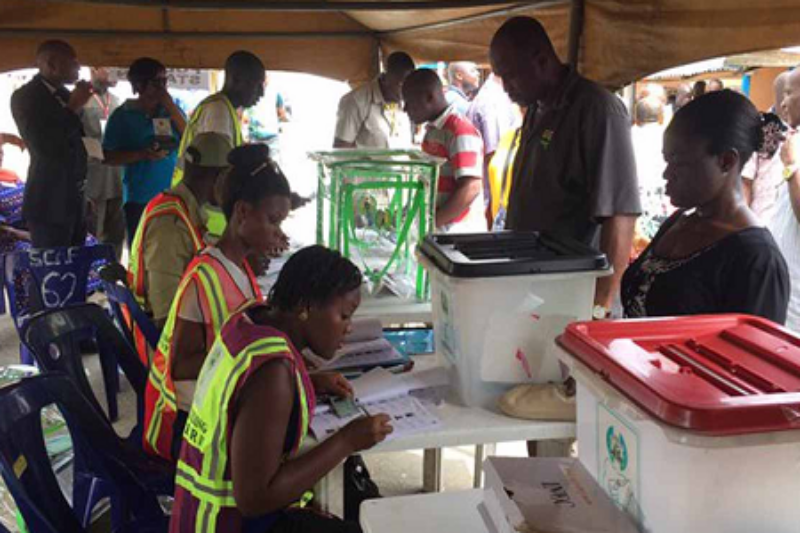ElectHER, a non-governmental organisation that champions the inclusion of women in politics, has said it is disappointed by the number of women who ran for parliamentary seats in the recent general elections, saying the number was lower than in previous years.
It said for the Senate, the percentage of women running decreased by 4% and that only 8.6% of the candidates were women.
Only one woman candidate stood for the presidential election and there were no women running mates.
In the governorship elections, which are being held on Saturday, March 18, of the 416 candidates, only 6% are women.
In the northeast of the country Aishatu Dahiru Ahmed is running for governor in Adamawa state. She is a member of the All Progressives Congress (APC) and is expected to win the seat.
Kaltum Ja’afaru, a women’s rights activist in Maiduguri, told RNI that few women took part in politics, particularly in the northeast region. She said women did not get the support or resources needed and there were cultural factors that also played a part.
“Very few women get involved in politics. They don’t buy or get tickets to contest an election.
“If women do participate, they are normally from the smaller political parties. Women who stand for election in the larger parties tend to be sidelined and do not get the same kind of support that men get.
“Some years ago, I stood as a candidate for the house of assembly in Borno State. Unfortunately, I did not have enough support and I did not succeed. I just had to accept it.
“Resources play a key role. You see an able woman who has what it takes to lead and is perfectly fit for a job in politics, but that journey requires capital and most women do not have the funds to sponsor themselves and political parties prefer to support male candidates.
“A woman cannot do it alone, she needs the support of men. If she has that support, she can succeed in politics.
“Our culture also does not support women in leadership positions and this discourages women from taking part in politics and elections.”
Bauchi Sheikh Idris Abdul-Aziz, a scholar in Bauchi, said: “Religion does not recognise women as leaders. There were no women leaders in the time of Prophet Muhammad, peace be upon him, and that cannot be changed now.”
A scholar in Kano, Dr Sheikh Sani Umar Rijiyan Lemu, said: “In history, women are not recognised as leaders who can rule a huge crowd of people.
“History has shown that women have contributed to the successes and development of society in different roles – just not leadership.”
He advised the public to support and encourage women in the things they did but said that women should not be further burdened by having to focus on leadership roles.
Residents of Maiduguri had mixed feelings about women getting involved in politics and many still believed that politics should be left to men to handle.
Muhammad told RNI reporter Rukaiya Ahmed Alibe that it was important for women to have a say in the running of the country because they were more peaceful and understanding by nature.
“Women can vote but I don’t think it is in their nature to become politicians,” he said.
Fanna said: “In my opinion, a woman can’t do what a man is able to do. A man should lead because when a woman leads no one takes much notice of her. A woman’s job is to cook and look after the family because that is what women are good at.”
Muhammad M Kolo said: “Woman leadership can be a problem although in some situations they are able to find solutions. But politics is really a man’s world.”
Bintu Bukar said: “I don’t believe women should take on leadership roles. How can a woman lead society? No, definitely not.”
Hajja Yana disagreed, saying: “It is possible for women to lead and I would be happy for a woman to take power. Once a person has been elected, even if she is a woman, I will follow her lead. If she wins an election, it shows that she can lead.”
Hajja Falmata said: “It is good if a woman is able and is given the opportunity to rule because it will be an advantage for all the other women in society. Women know and understand the problems that affect us. Women are more likely to understand, listen and provide solutions. There should be more women in leadership roles so that they can fight for the rights of all women.”
AISHA SD JAMAL






